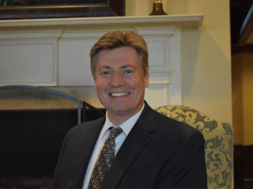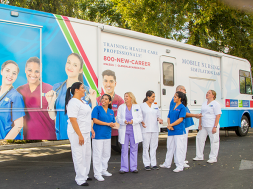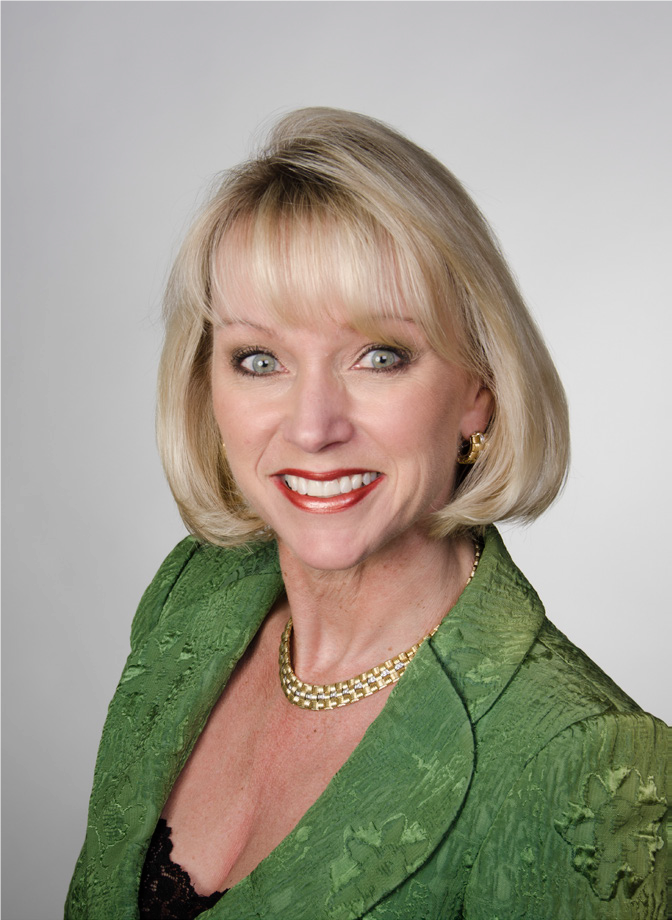
Bellus Academy President Changing Students’ Lives and Perceptions of Career Education
Interview with Lynelle Lynch, President and Owner, Bellus Academy and President, Beauty Changes Lives Foundation
Leadership. Webster’s New World Dictionary defines it as the ability to lead, command, direct or guide. Peter Drucker, management consultant and author, once said: “Management is doing things right; leadership is doing the right things.”
What are the right things and how do you lead effectively? That’s what “Career Education Review” hopes to uncover, and much more, in its series on leaders within the career education sector.
Q: What made you decide to get involved in career education?
A: My husband is an entrepreneur and has more than 30 different businesses. The woman who was running three beauty colleges in San Diego died and he asked me to go see if we should close or sell them. That was almost 13 years ago.
The beauty schools were very well respected on the state level, but all the schools had different names. Even though they had a rich history, I wanted to try to revolutionize beauty and wellness education.
I believed we needed to enhance all our programs to not only teach to pass state boards, but also to give students the life skills, as well as the beauty and wellness skills that are relevant in the industry today. That was the beginning of Bellus.
It took me two years and four PR agencies to design the logo and come up with the name Bellus. Bellus, which means beauty, comes from a 15th century language that no longer exists. Bella is Italian for beauty. Bellus is a term that we’ve trademarked and we are very proud to have a beautiful name representing the brand and what we do inside our four walls educationally.
Q: Did you have experience in the beauty industry before Bellus Academy?
A: My passion has always been in the fashion industry. I went to college to get a chemistry degree, but was always involved in fashion. My first job after college was managing a Saks Fifth Avenue store, so that’s where I gained at least some beauty experience. But I didn’t have the experience to the extent of what we do at Bellus.
Q: Tell me about the beauty schools before you took them over.
A: Our main campus in Poway was about 10,000 square feet; today it’s 20,000 square feet due to a massive renovation about 10 years ago. We went from having four programs to 17 programs. We were all about revolutionizing beauty and wellness education and adding innovations into each individual program. For example, instead of just having an esthetics program, we have an esthetics and makeup artistry program. We also have a combined esthetics and a master esthetics program that adds everything that you can think of from MediSpa protocols and the equipment, to eyelash extensions. Each of our programs is constantly evolving because the beauty industry is constantly evolving. An incredible team of educators, many who’ve been with me 8-12 years, continues to stay relevant by going to national conventions and living on the professional world side.
Q: How many students do you currently have?
A: We have about 800 students. We have four campuses, including three in San Diego County, California, and one in Manhattan, Kansas, which is an interesting part of our history. In 2010, after we won the national competition for the best school in the nation, we wanted to take this model and brand across the country. We purchased a 20,000-square-foot school in Manhattan, Kansas, but then the first round of Gainful Employment came around. We put the brakes on going after more schools because the major question was would this be a viable business in the future? As much as I love what we do in changing lives, it was not the best business decision to expand. Today, we continue to look at opportunities.
Q: What makes Bellus stand out from other schools?
A: We offer advanced education and multiple programs, combined with the recognition we’ve received through the awards that we have won. We have received an annual award for the last two years for community service. In addition, a leading industry publication, Modern Salon, awards Excellence in Education awards annually, which we’ve won every year. Intercoiffure has also recognized us as the No. 1 academy on the North American continent.
In addition, our educators compete in the highest levels of professional competitions and have taken gold, silver and bronze awards.
It’s the same with our students. That’s the long way of describing what makes us shine. It’s being an award-winning academy that has top talent, and investing in our educators who are some of the elite within the professional industry, not just the school industry.
Q: What are your most popular programs, and why do you believe they are so popular?
A: The most popular programs today are our advanced esthetic programs. I think that many are viewing that as a successful career to join. We also have seen a surge in our barbering program with barbershops popping up all over the place. In addition, we’ve seen the growth of Massage Envy and Massage Heights, and obviously massages are not a luxury anymore. I think beauty and wellness all have had their growth from the consumer standpoint, and that’s driving the interest from the students’ perspectives.
Q: What is one innovative idea you have implemented at Bellus Academy?
A: It’s all about ensuring that your students are engaged, and that they are progressing successfully through their programs. So we added an App into our program about 4-5 years ago that really connects the students in many ways. They can watch their progress. They can look up just about anything. They can even connect with other students to carpool. They can apply for jobs right on the app; our whole job placement has been simplified to their phone.
Our students live by their phones and technology is really important. Having that play a part in their life here at Bellus not only helps us send fun and motivational messages to keep them engaged, but it also is a way for them to stay focused on their curriculum. That’s probably one of the biggest things that has been culturally innovative for us.
Q: What qualities do you think make you an effective leader?
A: I think it’s being bold and courageous. I entered this sector with absolutely zero experience and have taken these academies to be world recognized. I sit on a lot of different boards, whether it’s the Career Education Colleges and Universities (CECU), the American Association of Cosmetology Schools (AACS) or the California Association of Postsecondary Schools (CAPPS). I’m the founding president of a nonprofit called Beauty Changes Lives where we’ve raised $5 million for scholarships. I think it’s just my ability to see a higher vision and then be able to implement that.
Q: How would you describe your management style and why do you think it works?
A: I feel I’m an inspirational manager who empowers the team. I set them up to be entrepreneurial. I think that’s why I have such long-tenured individuals who stay in positions and continue to contribute because they know I have an open door policy and that I always want to challenge them to ask new ideas.
Bellus has continued to evolve through teamwork and through the empowerment and entrepreneurial spirit of many individuals within our organization.
We have three commitments that we stay true to. First, we invest in our team by giving them advanced educational opportunities. Secondly, we invest in our brand and really engage everyone with our social media postings and involvement in competitions. And thirdly, we invest in our community. Giving back makes a difference. I think people want to be part of an organization that’s a winner.
Q: How do you keep your staff motivated?
A: Maya Angelou, an American poet, singer and civil rights advocate, said it best. People will forget what you said and what you did, but they’ll never forget how you made them feel. So by making our students and our team feel inspired, we motivate them. Motivating people is challenging because they come from different walks of life, but really focusing on giving them opportunities and empowering them is the best way to lead a team.
Q: What are your current challenges in your position, and how do you overcome them?
A: There are two sets of challenges in higher education today. One is the consistency of education and ensuring student satisfaction. The other one lives in the evolving regulatory landscape and trying to stay on top of changes. How have we overcome them? I think student satisfaction results from ongoing communication and motivation for students and staff. The regulatory challenges, however, require schools to be actively involved in various associations so they take a responsible position and work with other sector leaders to ensure that we continue to have a positive regulatory environment in which our students can flourish.
Q: Recently there has been a focus on higher education outcomes; what are your thoughts on this?
A: The higher education for-profit world has always been responsive to outcomes because our accreditors and states demand that we report on our licensure, our placement and our graduation rates. It’s the rest of higher education that has never had to report or be held responsible for that. We would love to have a set of standards that are equal amongst all of higher education institutions; anyone who goes to college or a career school should have Gainful Employment as a result of their education and should be able to improve their overall life based on that. So I think all of us are responsive to outcomes.
We have always done a great job at our outcomes in the beauty industry since we have the licensure, graduation rates and placement. Other industries don’t have the licensure element. We celebrate that and don’t want to get rid of it. However, the Higher Education Act expired in 2008 and it hasn’t been renewed since, so there’s definitely antiquated standards that we’re being held to like default rates and 90/10 and things that don’t really measure educational quality. Hopefully, getting through the reauthorization is going to allow us to focus on outcomes, as well as student success.
Q: What are your thoughts about using Gainful Employment as a measurement of outcomes?
A: I think Gainful Employment is a challenging thing to measure because we can’t predict a graduate’s desire after they leave. In the beauty industry, the IRS has said there’s so much unreported income, such as cash tips, that nobody accounts for. We have many graduates who work part-time so they are able to balance their family life and work. If people want to work two days a week, and that allows them to balance family and work, we should not judge them.
We are more interested in the conversation of loan repayments and really getting people focused on paying back their loans. While Gainful Employment is one way to look at the success of a program, we don’t believe in the beauty industry specifically, and even in career education, it’s a good way to measure whether or not the program was successful.
Q: What do you think is the most significant challenge facing the career education sector?
A: I have always believed that the poor perception of career and technical jobs is one of our biggest challenges. The beauty industry is still not seen as a first choice career. That is the reason and the catalyst behind the creation of our foundation, Beauty Changes Lives, to unite the industry, and to pay our success forward and make this a career perceived as a first choice.
But another problem is the number of jobs available in career and technical fields.
The CECU Board completed a study two years ago that looked at the demand of career and technical jobs over the next 10 years; it found that there would be 5 million career and technical jobs.
But 1,434,000 of those jobs are in the beauty and wellness categories. The International Spa Association has 33,000 jobs open today in the spa industry and they can’t find enough qualitied workers.
We recently launched a national movement and campaign on a website called Get Your Dream Job (http://www.getyourdreamjob.com/). Reuters reported a study years ago that showed 14 percent of Americans have a dream job; everyone else works for a paycheck. So that was the catalyst behind this campaign.
Our first big launch was with the Ratner Companies and its seven salon brands. They have 950 locations across the country and they put up posters and their employees are telling guests who come in why they love their jobs and what a great career the beauty and wellness industry is. In addition, if someone is interested in the field, they offer a scholarship to attend beauty school.
Our foundation (https://beautychangeslives.org/) has been in existence for five years, and we are trying to unite the industry and elevate the perception. I’m incredibly honored to have a Board of Directors representing all the top beauty brands including Coty, Unilever, Goldwell and Paul Mitchell Schools. I have 13 leaders on my board and we’ve raised $5 million. Ten different organizations have signed up to launch the Get Your Dream Job Campaign through their membership. We’re hoping that one day you’ll see this campaign in every salon or spa and that guests will ask what it is and that the employees will tell them how much they love their jobs. We really just want to expose the extraordinary careers in beauty and wellness.
Q: How does the career education sector do what you’re doing with your foundation?
A: I have been on this crusade for about seven years. The very first Beauty Changes Lives event was just a staged event. It was a diverse range of people telling their stories of how successful they are. For example, you can guess how the conversation went when celebrity hairstylist Ted Gibson, who was born to an Army father, said he was going to go to beauty school. But he’s now one of the highest paid and sought-after platform artists. He works with many major stars, such as Anne Hathaway, and charges $1,500 for a haircut, and that’s not even color or anything else. He was born in the same town I was, and both of our dads went to Fort Hood in Texas. He was on my Board for a couple of years, as well as our national spokesman.
If it’s nursing schools, then hospitals should be the biggest microphone to tell all their guests. You never can judge when a person is going to decide to take that courageous step and enroll in a career or technical school. Who is to say that we can’t be the catalyst by saying we love our job, whichever industry we’re in.
Q: Are there any noteworthy changes in the beauty industry that cosmetology schools should be following?
A: The list is endless. There are some other schools that are recognizing and embracing things such as eyelash or hair extensions. If you do give students that little bit of advanced education while they are in their schooling, that can be the difference between them making a great income in their first year or just struggling. When you look at where the money is being made across the country, you see there are a lot of brow bars, waxing centers and eyelash and extension centers. I think those elements are a quick addition that beauty schools can do to help be innovative, but also set their students up for incremental income.
In addition, our advisory board always asks for marketing and people skills. We’ve always had a robust marketing program within our school. We’ve also always had a financial literacy program that we embedded about 10 years ago to teach basic budgeting, savings and compound interest. Those are things that you assume people know, but many people still live paycheck to paycheck. So giving them some financial benchmarks, or some financial education, is also critical.
Q: What do you see as the future of career education in the next 5-10 years?
A: CECU is projecting over 5 million new careers in the next 10 years, and some of those are careers that don’t exist today. I believe there will continue to be a need for career education, but the question is if we can make it through all of the challenges to still be a viable sector.
Deregulation is going to be one of those challenges. There is a movement across the country to deregulate. That will be positive for certain industries that are overregulated in terms of needing licenses to do certain jobs. But in the beauty industry, there’s still a need for education with all the chemistry and the anatomy and everything that students need to learn in order to be successful.
Our educational system could look completely different in the future. If we end up going away from having licenses, there still will probably be some level of certificate training. But that’s definitely both a threat and a trend.
Q: If you could give other leaders in the career education sector one tip, what would it be?
A: Stay relevant and seek inspiration outside of your industry, whether it’s Ted Talks or other aspects where you can gain leadership, innovation or motivational best practices. Personally, I tend to get inspired from activities and things that I do outside of the sector, rather than from within the sector.
Q: Is there anything you would like to add that we didn’t cover?
A: We need to discover how can we best tackle the perception issues facing the sector and look to engage the professional community that we serve in new and different ways to be part of our solution. I know what it looks like in the beauty industry, but I don’t know exactly what that looks like in other fields. Because I do serve on a variety of boards, I try and look at this from all of career education.
Get Your Dream Job is a beautiful example of how we’re uniting the industry to inspire others to join the industry and solve the job demand.
Last year in the California area we had 3,000 job postings for 800 graduates. There are a lot of jobs that just sit open. There’s probably not a salon or spa across the country that couldn’t use more professionals today. Opportunities in this sector are endless. It’s just opening people’s eyes to those opportunities.
LYNELLE LYNCH accepted the challenge of reimagining beauty and wellness education in 2005 when she became president and owner of Bellus Academy.
Recognizing that professional development is a lifelong adventure, she led the development of advanced education programs. Bellus Academy’s educators continually strive to push their creative boundaries and routinely place in the world’s most prestigious industry competitions. In addition, Bellus Academy students learn not just the art and science of cosmetology and related programs, but also vital business skills, including personal finance and marketing.
As a leader, Lynelle models a philosophy that is simultaneously competitive and humanitarian. In 2015, she accepted the international Intercoiffure Mondial Award, recognizing Bellus Academy as the top academy in North America. Bellus Academy also received the California Association of Private Postsecondary Schools (CAPPS) “Gold” Award for Excellence in Community Service in March 2017, and the North San Diego Business Chamber named Lynelle the Business Leader of the Year in June 2017.
However, she is particularly proud of the Beauty Changes Lives Foundation that she founded in 2009. Since becoming a 501(c)(3), the foundation has raised millions of dollars and awarded thousands of scholarships for individuals pursuing careers in hairstyling, esthetics, massage therapy, professional nails, makeup and barbering. She has also engaged some of the world’s most esteemed beauty brands in supporting NextGen talent.
Lynelle currently serves on seven boards, including the Career Education Colleges and Universities (CECU) Board of Directors.
Contact Information: Lynelle Lynch // President and Owner, Bellus Academy // President, Beauty Changes Lives Foundation // 858-525-2210 // llynch@bellusacademy.edu // www.bellusacademy.edu // https://www.facebook.com/bellusacademy/ // https://twitter.com/BellusAcademy // https://www.pinterest.com/bellusacademy/ // https://www.instagram.com/bellusacademy/ // Media Contact: Susan Miller, smiller@5metacom.com, 765-620-2007









